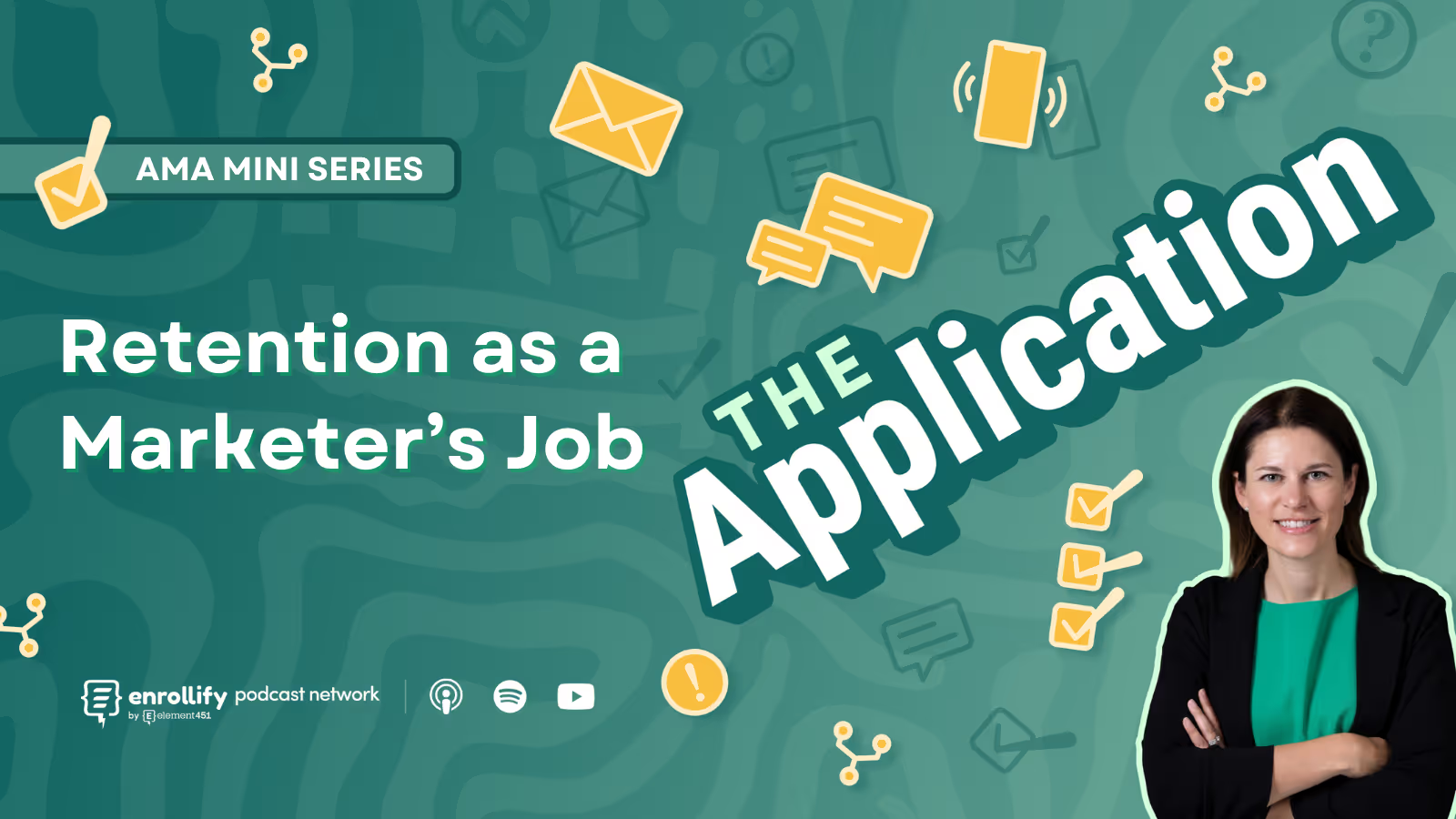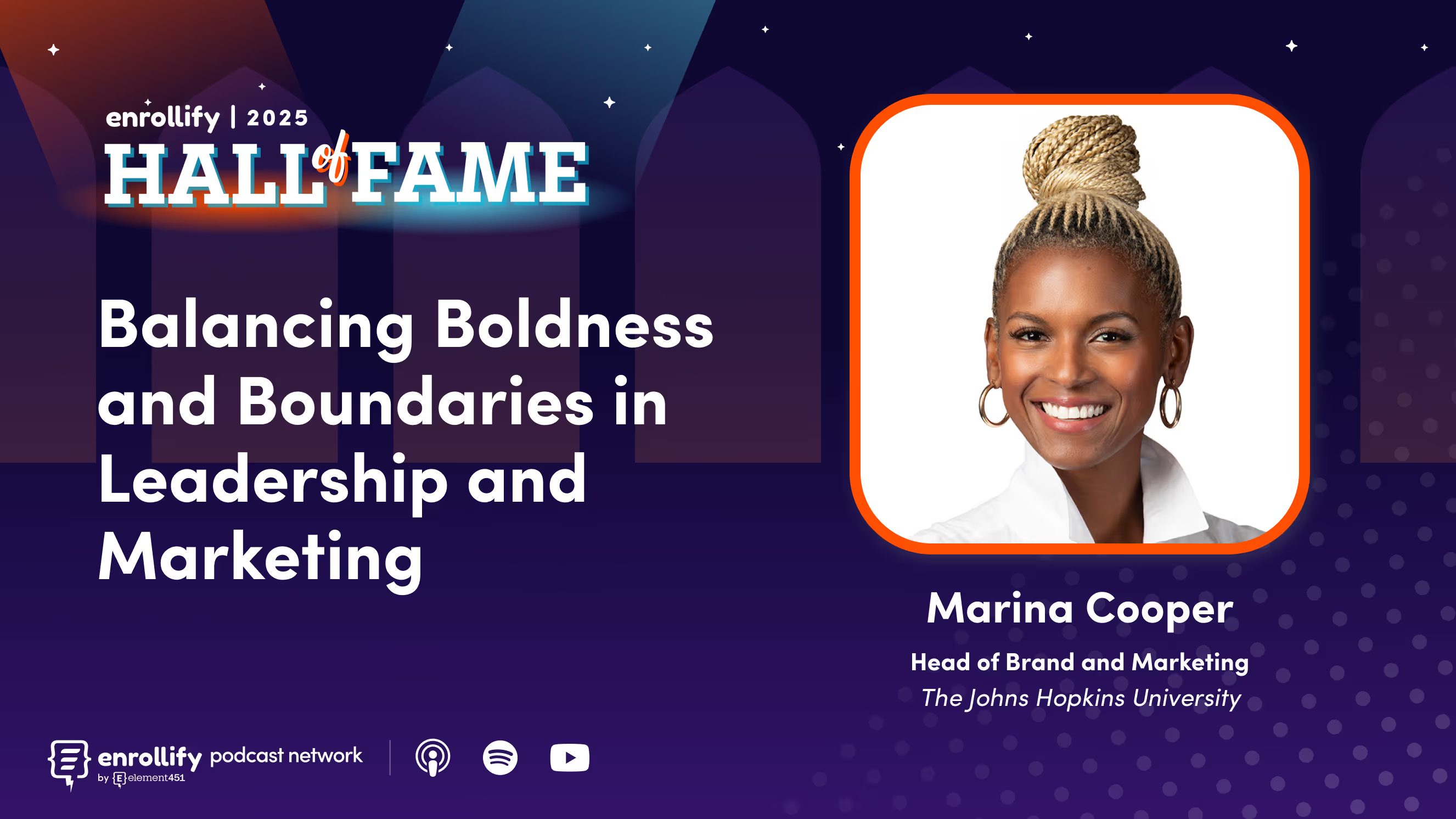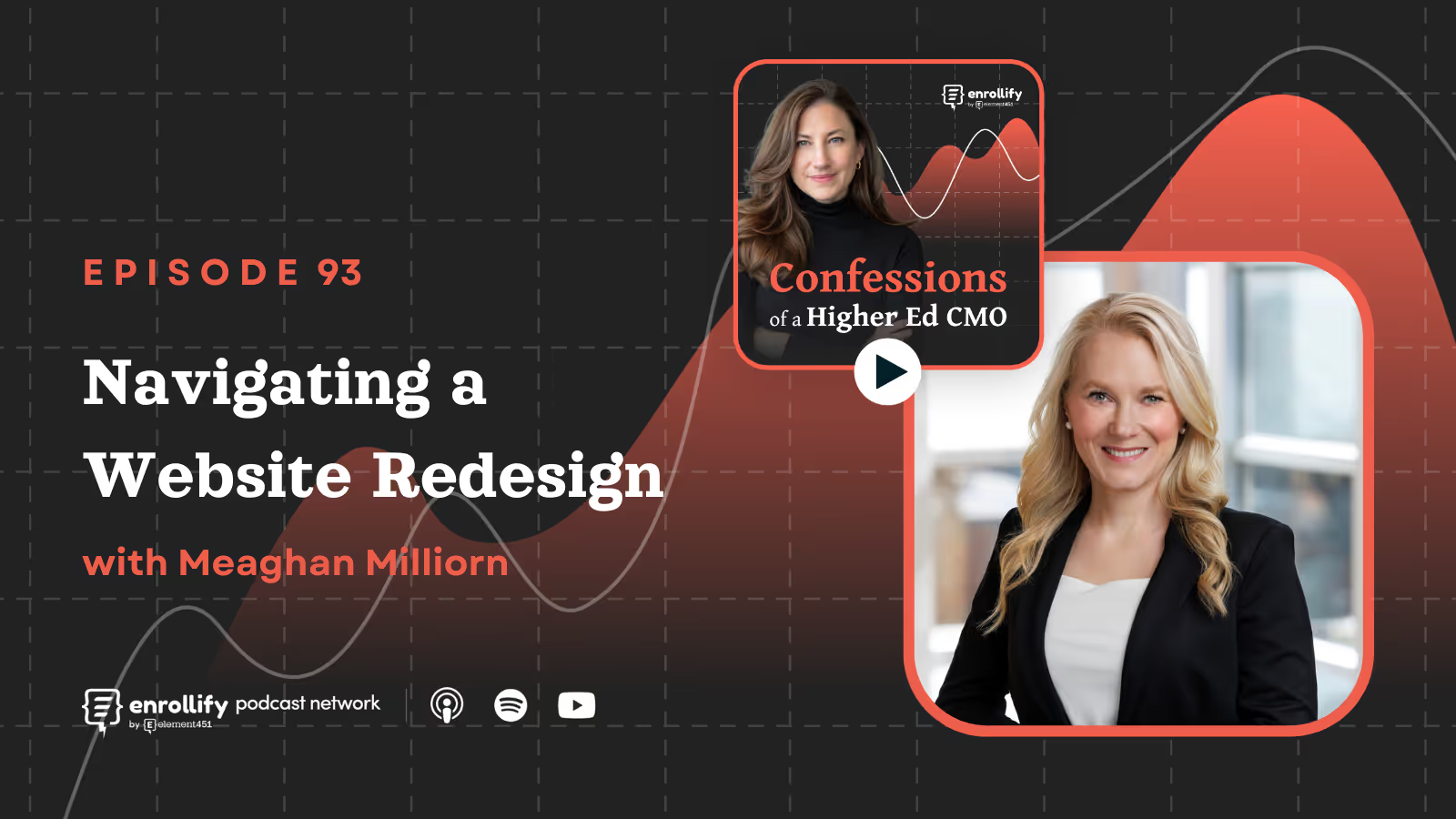About the Episode
About The Episode:
Back live from HighEdWeb 2024, Mallory interviews Margaret Hair, Director of Marketing and Communications at the School of Social Welfare, University of Kansas. Margaret shares invaluable insights into how to conduct effective interviews for marketing stories. From setting clear goals to crafting compelling questions, Margaret provides a step-by-step guide to ensure your interviews yield authentic and engaging content. This conversation is packed with practical tips that any higher ed marketer can use to improve their storytelling techniques.
Key Takeaways
- Always conduct a real interview, avoiding email-based Q&A to capture authentic responses.
- Pre-interview preparation is key—gather background info and share expectations to make the interviewee comfortable.
- Focus on open-ended questions and follow-ups to unlock deeper, more specific answers.
- Repurpose interview content across different platforms, from social media to web copy, for maximum impact.
Setting Clear Goals and Defining Your Audience
When planning a marketing story, your first step should always be to define your goals. Margaret explains that each interview should aim to achieve one primary outcome. Whether it's answering prospective students’ questions, highlighting a faculty member’s research, or offering a fresh perspective on a relevant issue, being clear about your goal ensures that your interview stays focused. This approach helps you shape the interview questions and the direction of the conversation.
Furthermore, understanding your audience is crucial. Are you speaking to prospective students, current students, or perhaps peer institutions? The audience will determine the tone of the story and the types of questions you ask. For example, a spotlight on faculty will have a different approach than one designed for prospective students. By aligning your goals with your audience’s needs, you can create more targeted and meaningful content.
Conducting a Genuine Interview
Margaret’s first piece of advice is deceptively simple: always conduct a live interview. While it may be tempting to email a list of questions, this approach often yields stiff, over-rehearsed responses that lack the authenticity of a real conversation. Conducting an interview via Zoom, phone, or in person allows for a more organic exchange. You'll be able to capture anecdotes, natural pauses, and other nuances that can make your story richer and more engaging.
Email responses often come in overly polished, making it difficult to cut down or edit. Additionally, the back-and-forth of a real interview gives you the opportunity to ask follow-up questions, probe deeper into interesting points, and ensure you're getting the most out of your subject. As Margaret notes, a genuine interview helps you develop better content and ensures that your story resonates with your audience.
Pre-Interview Prep: Setting the Stage for Success
A successful interview begins before the first question is even asked. Margaret suggests gathering background information such as names, pronouns, job titles, and other essential details ahead of time. This helps the interviewee feel comfortable and ensures accuracy in your story. Sharing a rough idea of the questions you plan to ask also gives the interviewee time to think about their answers, making the actual interview process smoother and more productive.
It's also important to manage expectations. Let your interviewee know how long the interview will take, how it will be used, and whether it will be recorded. This clarity reduces anxiety and builds trust. For student interviews, Margaret advises asking for information like their major, year in school, and hometown, which helps ease them into the conversation.
Crafting and Ranking Your Questions
One of the most critical aspects of a successful interview is asking the right questions. Margaret recommends writing your questions in advance and ranking them to ensure you hit all the key points. Start with some easy, yes-or-no questions to get the interviewee comfortable, then move on to open-ended questions that encourage deeper answers.
Questions that focus on the "how" and "why" of the person’s experience will yield richer content. For example, asking a student, “What made you realize this major was the right choice for you?” encourages them to share personal stories and insights. Always be ready to follow up on answers that seem intriguing or require clarification. Simple prompts like “Tell me more about that” or “I’m so curious about…” can help you uncover more interesting details.
Repurposing Interview Content Across Channels
One of the best ways to maximize the value of your interviews is to repurpose the content across different platforms. Whether you’re turning it into a blog post, social media snippet, or video short, interviews provide versatile material. Margaret emphasizes the importance of pre-reporting in this process. For example, if a student interview touches on their study abroad experience, that segment could be repurposed for your institution’s study abroad marketing.
By thinking ahead and asking questions that can be used in multiple contexts, you can ensure that each interview has long-lasting value. The insights you gather can be transformed into copy for emails, web pages, or even future campaigns, allowing your content to work harder for you.
Connect With Our Host:
Mallory Willsea
https://www.linkedin.com/in/mallorywillsea/
https://twitter.com/mallorywillsea
About The Enrollify Podcast Network: The Higher Ed Pulse is a part of the Enrollify Podcast Network. If you like this podcast, chances are you’ll like other Enrollify shows too!
Some of our favorites include Generation AI and Confessions of a Higher Education Social Media Manager.
Enrollify is made possible by Element451 — the next-generation AI student engagement platform helping institutions create meaningful and personalized interactions with students. Learn more at element451.com.
Element451 is hosting the AI Engage Summit on Oct 29 and 30. Register now for this free, virtual event.The future of higher ed is being redefined by the transformative power of AI. The AI Engage Summit brings together higher ed leaders, innovators, and many of your favorite Enrollify creators to explore AI’s impact on student engagement, enrollment marketing, and institutional success.
Experience firsthand how AI is improving content personalization at scale, impacting strategic decision-making, and intuitively automating the mundane tasks that consume our time. The schedule is packed with real examples and case studies, so you leave knowing how to harness AI to drive meaningful change at your institution.
Whether you’re looking to enhance student outcomes, optimize enrollment marketing, or simply stay ahead of the curve, the AI Engage Summit is your gateway to the next level of higher education innovation. Registration is free, save your spot today.







.avif)







